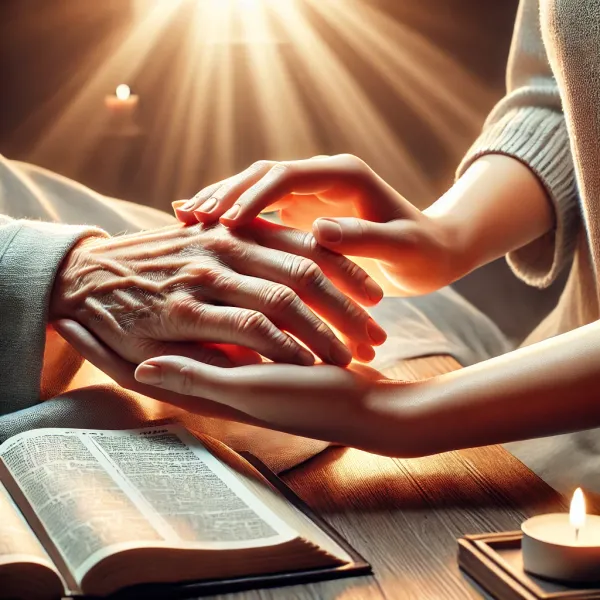Is There Life After Death? What Are Your Thoughts?
Diane Carbo shares her thoughts on the afterlife and her belief in the continuation of the soul after physical death. She also discusses her experiences with mediums and the comfort of being able to connect with deceased loved ones.

In a recent blog post, I delved into the challenging topic of discussing death with one's family. Now, I've been asked to expand on my thoughts about life after death, building on the points I touched upon in that piece. This article is an exploration of my personal beliefs regarding life after death, an extension of my earlier work.
When we pass away, our physical bodies are laid to rest, and we cease to exist in the form we knew in life. However, I firmly believe that our souls endure, continuing to exist beyond the mortal realm. Although they are invisible, our inner selves persist in spirit, and perhaps even in heaven. As I mentioned in my previous article, no one who has physically returned has provided concrete evidence, but this is my interpretation of the matter.
I've personally experienced the presence of my late parents through mediums who have communicated with them, assuring me that they are watching over and guiding me. Additionally, a medium once told me about a Red Indian guide who is with me, offering guidance in distinguishing right from wrong. While there are both reputable and unreliable mediums, I must emphasize that the mediums I've consulted have consistently confirmed the presence of my departed family members. This provides great comfort.
My eldest daughter also consulted a medium in the past and received information that only she knew, without providing any prior details. This further strengthens my belief in the existence of an afterlife and the possibility of communication with loved ones who have passed on.
For those familiar with Dan Brown's "Angels and Demons," there's a quote toward the end of the book where the incoming Pope states, "God does not actually do anything and make things happen, but, in fact, he plants the ideas into your head." This concept resonates with me, as I consider myself a firm believer in God, albeit not overly religious. I frequently pray and seek guidance, and often, it feels as if ideas or solutions come to me after seeking divine assistance. It's a reassuring thought that God may plant these ideas in our minds, provided we have faith.
There have been moments when I've sensed the presence of my parents, making me believe that they are together and content in the afterlife. I remember a specific occasion when my wife mentioned that she could smell her mother's perfume in our bedroom. This happened after her mother had passed away, and my wife didn't have her perfume. It felt like a message from her mother, reassuring us of her eternal presence.
Regarding my Red Indian guide, there was an intriguing experience when I felt like I was taken on a journey around a famous square in Central London, even though I never left my room. I believe that everyone has a spirit guide, ideally a benevolent one. I also think that those with goodness in their hearts are rewarded with a benevolent guide. While I won't delve into the idea of potentially rogue guides, it's worth noting that the Red Indians, known for their strong religious beliefs, believed in an afterlife, which adds weight to this notion.
This concept may take time to grasp. Have you ever experienced something unexpectedly positive and wondered where it came from? How did it happen? It might be a sign from a departed relative or a guide, or perhaps both. How many times have you asked God for guidance, honestly? The answer may not come in the form of a voice but as a planted idea within your own mind. I'm not particularly religious, but I believe in the presence of God, my family, my guide, and the possibility of divine inspiration.
We all make mistakes, but I believe that every event in life has a purpose. I draw inspiration from Dante and Dan Brown's depiction of the nine rings of hell. It often seems that we must endure pain and misery to truly appreciate the good times and find release from suffering. Just like a toothache that keeps you up at night, the relief after a visit to the dentist is akin to this broader concept of suffering leading to understanding and appreciation.
Losing a job can be devastating, but how often do we hear stories of people finding even better opportunities afterward? It's as if life has a plan, teaching us to value the good through experiences of hardship.
We frequently use phrases like "Thank God," "God Forbid," or "Please God." These expressions suggest an inner belief in a higher power watching over us. When combined with the idea of a personal guide and the continued presence of departed loved ones, it creates a comforting narrative of reuniting with them in the afterlife.
In conclusion, we shouldn't fear death, as it's merely a continuation of life in a different form. Take solace in the fact that you'll play a role in this new phase. Believe that those who have passed away are free from pain and misery, and they continue to watch over and guide us, alongside our spiritual guides. This reunion with loved ones is something to look forward to.
Now, we invite you to share your thoughts and experiences regarding life after death. Your unique perspective can resonate with others on this platform, providing support and understanding. Please note that this platform is for sharing experiences and advocating for seniors, not a replacement for professional advice.
Feel free to express yourself, share your stories, ask questions, or seek assistance with your situation. We look forward to hearing your personal experiences and insights.
You might also like this article:





